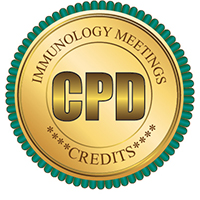
Xiaoying Zhang
Northwest Agriculture and Forestry University, China
Title: Immunological detection of antibiotic residues using antibody engineering
Biography
Biography: Xiaoying Zhang
Abstract
Residues of antibiotics in the aquatic environment and in food of animal origin represent a major concern, as prolonged exposure to antibiotics is a serious health hazard, related to both the side effects of prolonged use and the risk of developing bacterial resistance to various antibiotics. Given the low levels of the antibiotics residues in complex matrices, the development of sensitive analytical methods represents a major challenge. We report the current state of the art in the determination of antibiotics based antibody engineering and immunoassays. First, diversified antibody generation platforms/methods promote the screening and assessment of high qualified antibodies. Second, various immunoassays simplify and empower the immune-detection applications for different biomedical purposes. Third, there are tremendous academic motivations and industrial needs in the detection/evaluation of antibiotics by using antibodies and immunoassays. There are diversified antibody generation platforms/methods (e.g., Polyclonal antibody (pAb), Cell engineering antibodies—hybridoma technology, recombinant antibdy (rAb)). Different species of antibodies e.g. chicken antibody (polyclonal IgY, monoclonal IgY), camel antibodies, and rabbit antibodies have been widely used. The recent advancements in antibody engineering permit to produce chicken mIgY quickly and inexpensively by phage display technology, because chicken possess only one functional immunoglobulin heavy chain variable region (VH) gene and one light chain variable region (VL) gene. The purpose of our study is to prove that the mIgY could be used for immunological detection and diagnosis, for screening and validating of biomarkers and drug targets. There is a huge demand for the detection reagent of antibiotic residues on the market, and it gradually becomes the intrinsic driving force of the development of industry. Diversified antibody generation platforms/methods promote the screening and assessment of high qualified antibodies. Various immunoassays simplify and empower the immune-detection applications for different biomedical purposes.

